Gwinnett Coalition Secures CDC Foundation Grant to Reinforce Vaccine Equity
Print This Post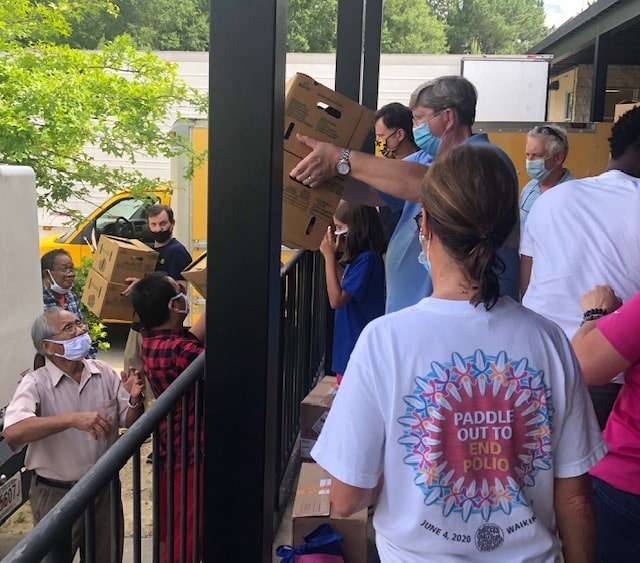
Gwinnett Cares distributed hundreds of thousands of food boxes to community-based organizations serving food insecure families.
By Paige Havens, Gwinnett Coalition
Gwinnett Coalition was one of only 150 community-based organizations across the U.S. to be awarded a grant by the Centers for Disease Control and Prevention (CDC) Foundation to promote COVID-19 vaccination and health equity in Gwinnett.
The $100,000 grant empowers the Georgia Family Connection Collaborative to engage with state and local health departments and local partners to address vaccine-related concerns, develop innovative and culturally appropriate communications strategies, and promote timely vaccination. The scope of work includes developing vaccine resources, hosting community events, engaging in neighborhood-level outreach, and managing a communication campaign.
“The Coalition was uniquely positioned to provide culturally appropriate and community-tailored information about mitigation measures, thanks to a strong operational infrastructure, active health care response team, engaged community partners, and a culture of cooperation already in place,” said Renée Byrd-Lewis, Gwinnett Coalition’s executive director. “So, we could hit the ground running from day one.”
Preparing for the Pandemic
In March 2020, leaders in Gwinnett called an emergency meeting to gather stakeholders across all community sectors to formulate a coordinated response plan to the COVID-19 pandemic. The group pledged to create an infrastructure for unified and coordinated messaging to Gwinnett’s nearly 1 million citizens and synchronize response teams to address imminent health and human service needs.
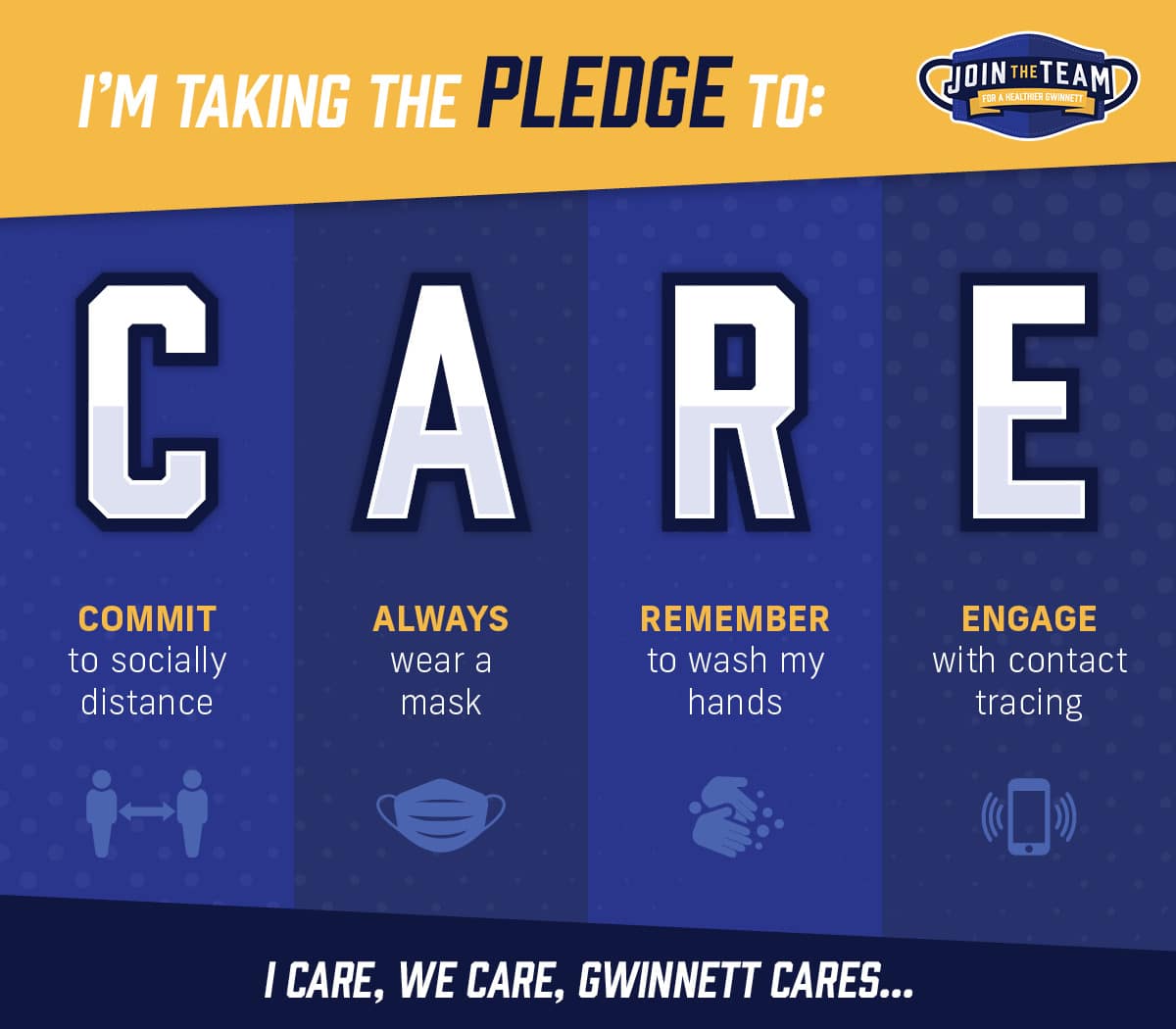
Within days, Gwinnett Coalition launched Gwinnett Cares with the slogan, “Caring for our community through COVID-19.” As part of the campaign, the Coalition created a centralized website, launched social media channels, and distributed news articles, PSAs, and billboard advertisements. GwinnettCares.org helps people in crisis connect to resources while directing those who want to help engage where they’re most needed.
“As Georgia’s second most populous county, it was imperative that the communications infrastructure provided residents with a trusted source for information that was Gwinnett-centric, focused specifically on real-time needs of the local community,” said Byrd-Lewis.
Gwinnett Cares partners aimed to provide resources safely, quickly, and equitably. Volunteer response teams, led by experts, formed around food insecurity, homelessness and housing, health care, education, workforce development, and multiculturalism. Each team held weekly virtual calls and all teams gathered at the end of each week to synchronize efforts, discuss challenges, and celebrate successes.
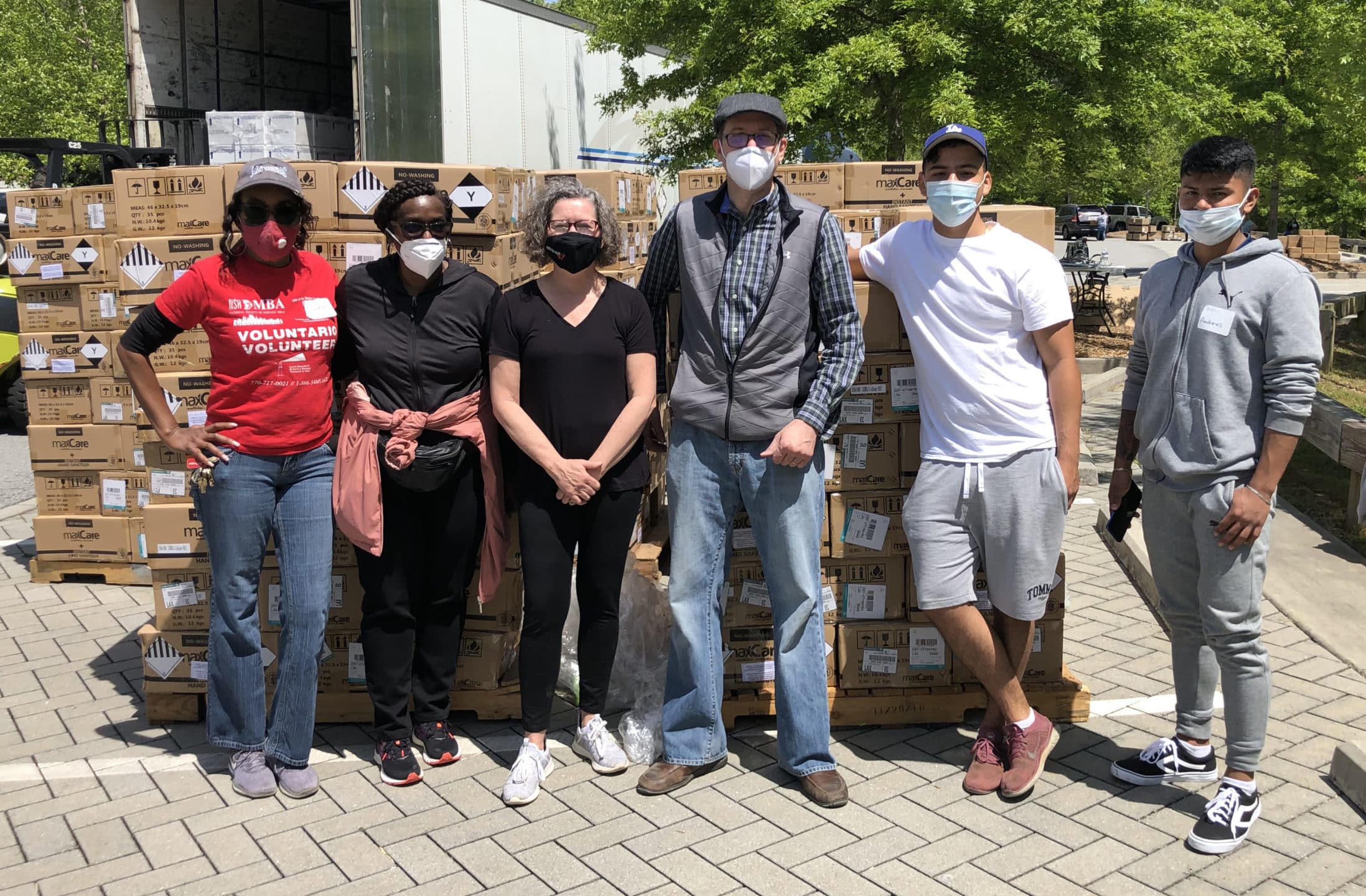
Gwinnett Cares moved tractor trailer loads of PPE across the community to keep everyone as safe as possible.
At the start of the pandemic, more than 15% of Gwinnett’s children lived in poverty, 75% of school-aged children were enrolled in free and reduced lunch programs, and more than 18% of residents were uninsured. With a diversity index of 80% and 35% of residents speaking a language other than English, response teams also prepared for language and cultural barriers.
“Gwinnett is Georgia’s most demographically diverse county, so Gwinnett Cares focuses on protecting the most vulnerable children and families,” said Denise Townsend, United Way of Greater Atlanta’s regional director for Gwinnett. “Ensuring support for underserved parts of our community is central to the United Way’s child well-being agenda, so we were eager to join with Gwinnett nonprofits that became the center of the response effort. The community rallied to equip and empower them to succeed. Team collaboration and willingness to adapt was as critical as the need for direct support services—which grew by more than 600%. Residents who never had to rely upon support services flooded in, and they had no idea how to navigate the system. Education and communication were catapulted to a whole new level.”
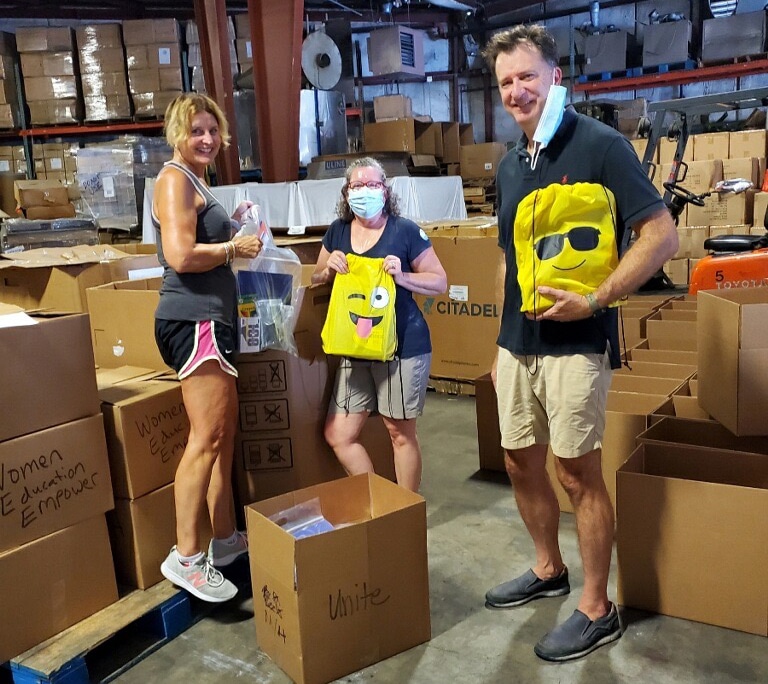
Gwinnett Cares volunteers helped sort and distribute school supplies to school-age children learning at home to ensure they had the resources they needed to succeed.
As emergency funding came into the community, Gwinnett nonprofits collaborated on grant applications, pooling resources to work efficiently and effectively. Teams collaborated to minimize duplication of services, streamline agency referral processes, and identify gaps. Partners from around metro Atlanta were also recruited to bridge larger service gaps.
Continuing Community Outreach
A year after the launch of Gwinnett Cares, coordination efforts grew well beyond what volunteers could sustain long term. “Gwinnett had a high COVID-19 Community Vulnerability Index of .70, so we knew we had to pull together all resources to build up immunity in our community,” explained Dr. Audrey Arona, district health director for Gwinnett, Newton, and Rockdale County Health Departments. “As the highly contagious Delta variant spurred another sharp increase in cases, hospitalizations, and deaths among the unvaccinated, more resources were needed to staff and maintain Gwinnett Cares operations while supporting the Health Department’s efforts to increase vaccination. The vaccine is the only way out of this pandemic. Achieving herd immunity provides the greatest relief for children and families.”
As part of the Georgia Family Connection statewide network, Gwinnett Coalition was uniquely poised to serve as the backbone for Gwinnett Cares. Helping to oversee planning, partner coordination, volunteer engagement, and logistical and administrative support helps families remain stable, self-sufficient, and productive during a challenging time.
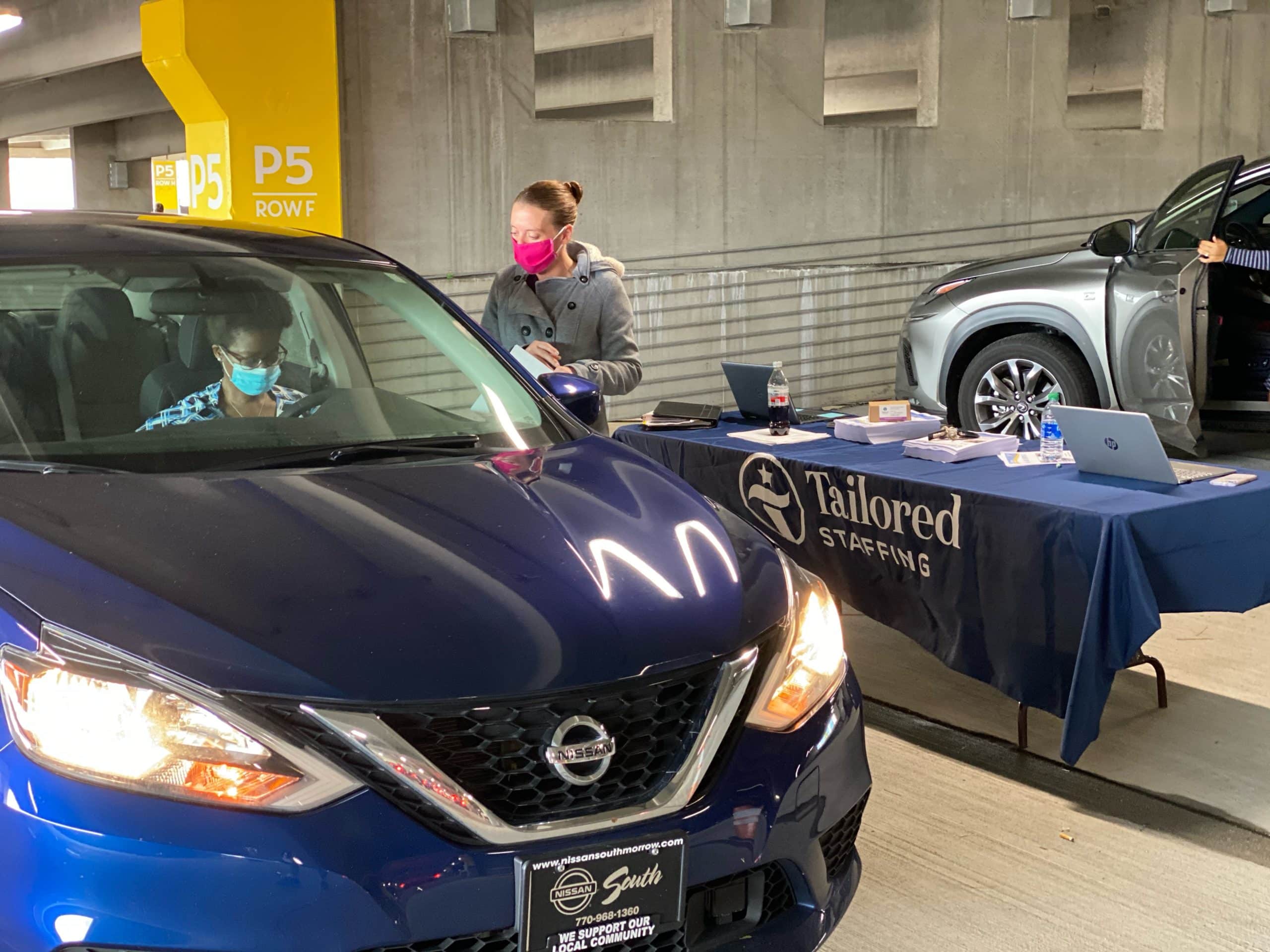
Gwinnett Cares hosted the county’s first drive-through job fair to address an unemployment rate higher than 12% to help people get back to work.
Gwinnett Coalition is utilizing the CDC Foundation grant to support effective community outreach specifically for Black, Indigenous, and other People Of Color (BIPOC) communities. The grant involves sharing accurate, culturally appropriate information about the COVID-19 and flu vaccines and links adults to vaccine services. The CDC Foundation provides access to real-time resources from research and offers educational programs, online learning communities, and toolkits.
The grant is part of the CDC Foundation’s ongoing work to advance health equity and address structural racism and other systemic barriers that lead to unequal access to the building blocks of good health—like healthy neighborhoods, housing and food, and high-quality health care—and result in inequitable health outcomes. These inequities have resulted in people in some racial and ethnic groups bearing a disproportionate impact during the pandemic, with much higher rates of COVID cases and deaths.
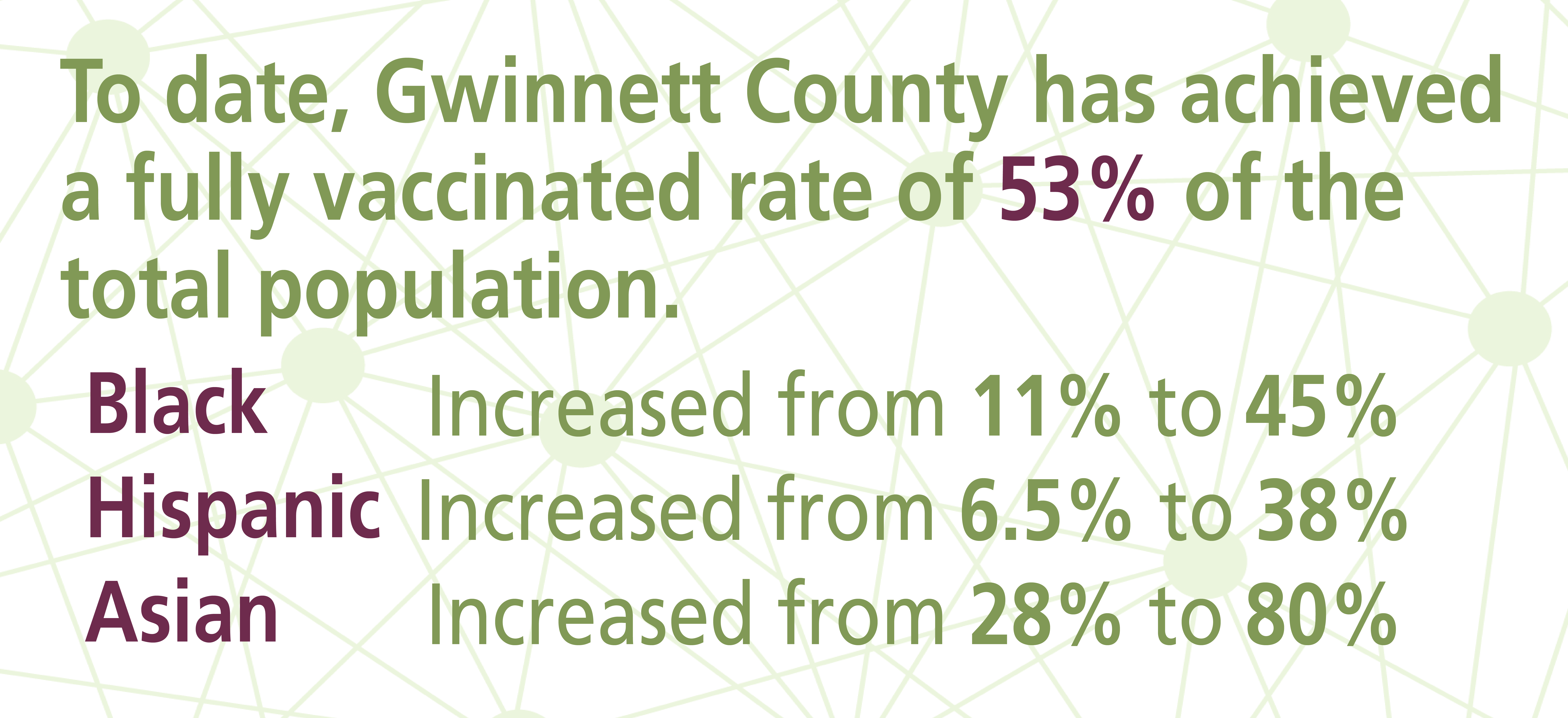
“We’re thrilled to work in partnership with the CDC Foundation to address complex social, economic, and place-based factors that lead to health inequities and help our community develop a more robust understanding of the barriers. This work aligns perfectly with our mission to help underserved children and their families thrive,” said Byrd-Lewis. “Gwinnett Coalition and our engaged partners are learning best practices from this effort that can be leveraged for future initiatives. While this grant has a strong lens on vaccination efforts, the programs, infrastructure, and systems we put in place now will serve our community on many fronts for decades to come.”
Contact:
Krystin Dean
GaFCP Communications Specialist
706-897-4711
krystin@gafcp.org
Follow us on Twitter: @gafcpnews
Connect with us on Facebook.
Georgia Family Connection Partnership (GaFCP) is a public-private partnership created by the State of Georgia and investors from the private sector to assist communities in addressing the serious challenges facing children and families. GaFCP also serves as a resource to state agencies across Georgia that work to improve the conditions of children and families. Georgia KIDS COUNT provides policymakers and citizens with current data they need to make informed decisions regarding priorities, services, and resources that impact Georgia’s children, youth, families, and communities.
